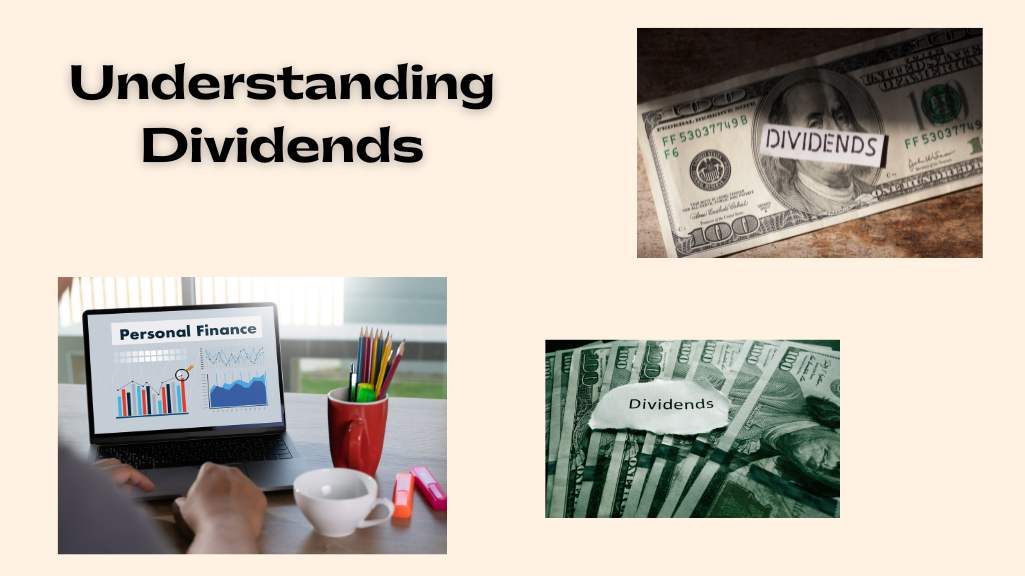Understanding Dividends: Types, Impact on Personal Finances
Devin Barton
. 3 min read
Dividends are payments made by a company to its stockholders as a way of sharing the company's profits. They are distributed on a consistent basis, and one of the ways investors earn a return from investing in stocks is by receiving dividend payments. But not all stocks pay dividends. If you are interested in investing for dividends, you will need to choose dividend stocks, which you may have heard about in recent news articles. Additionally, with the advancement of technology, many brokerage firms now offer convenient online chat services that can assist you in selecting the right dividend stocks for your investment portfolio.

What kind of an impact will dividends have on my personal finances?
Your personal finances may benefit significantly from dividends in a number of ways. If you have some kind of savings account designated for retirement, you most likely get dividends on that account. A lot of people's retirement savings are invested in mutual funds, which are pools of money that hold a variety of stocks that pay dividends. When a mutual fund realizes a profit from the collection of dividends, that profit is distributed among the fund's shareholders.
Extraordinary Dividends
A one-time bonus dividend payment is referred to as a special dividend. Special dividends may be one-time payments made by a company that does not typically pay dividends, or they may be additional dividends paid in addition to a company's regularly scheduled dividends. Either way, special dividends are paid to shareholders.
Scrip dividends
When a company does not have adequate funds to issue dividends in the near future, it will issue scrip dividends, which are essentially a promissory note that promises to pay shareholders at a later date. When a company does not have sufficient funds to issue dividends in the near future, it will issue scrip dividends. These dividends might also include interest.
Property dividends
Some businesses choose to compensate their shareholders with assets or inventories rather than cash, although this practice is much less common. They figure out how much money should be distributed to each shareholder by looking at the asset's value in the open market.
Distributions in the form of cash
These are the most common kinds of dividends, and they are distributed to shareholders in the form of a monetary amount that is transferred from the company. The payment of these dividends occurs on a quarterly basis the majority of the time; however, certain businesses may choose to pay them on a monthly, semiannual, or annual basis instead, or even in a lump sum once.
Stock Dividends
A dividend that is paid out in the form of shares of stock rather than cash is referred to as a stock dividend. You have the option of selling these dividend shares in order to receive a payout right away, or you can choose to keep them. The operation of a stock dividend is remarkably similar to that of an automated dividend reinvestment program (more on that below).
Regular dividend
This particular variety is the most typical. Companies that pay a regular dividend are more likely to pay it consistently over time. This is achieved in part by determining the amount of the dividend in a way that ensures it can be maintained both in prosperous and unprofitable years. Regular dividends are paid out on a quarterly basis the majority of the time.
Variable dividend
In addition to making consistent dividend payments, some businesses that produce commodities such as oil and gas, timber, and mined materials may choose to make payments of a variable dividend from time to time. Variable dividends are those that are paid out at intervals that are relatively consistent.
Advantages and Disadvantages of Stock Dividends
When viewed through the lens of an investor, the receipt of stock dividends does not provide much in the way of immediate reward. However, there is no obligation to pay tax until the additional shares are put up for sale. The value of the company's stock drops whenever dividends are distributed to shareholders, at least in the short term. In general, a lower stock price will attract more buyers, which increases the likelihood that current shareholders will receive their reward at some point in the future.
A Few Parting Thoughts
Dividends are only one component of the overall value of a stock. The extent to which a stock's price can grow in the future is frequently a much more important factor in determining its value. Smart investors are aware of this fact, and they don't base their investment decisions on the size of a dividend payment alone; rather, they consider the entire picture.
More Stories from
Masroor Rock Cut Temple in Kangra, Himachal Pradesh: A Marvel of Ancient Architecture
Discover the fascinating world of the Masroor Rock Cut Temple, an architectural gem carved into the sandstone cliffs of Kangra, Himachal Pradesh.
Architecture Engineering: Shaping the Built Environment
Discover the core principles, educational requirements, and responsibilities of architecture engineers, as well as the trends shaping the future of the profession.
The Enchanting Rhododendron: Himachal Pradesh's State Flower
Discover the captivating Rhododendron, the state flower of Himachal Pradesh, India. This vibrant evergreen shrub, native to the Himalayas, paints the landscape with breathtaking colors each spring.
Exploring the Uncharted: Speculative Insights into the World Beyond 2021
This article provides a brief overview of potential geopolitical shifts, technological advancements, environmental concerns, health challenges, economic developments.
Racial Justice and Inclusivity: Promoting Equality in Society
Explore the vital journey towards racial justice and inclusivity as we uncover the challenges faced by marginalized communities and the transformative power of inclusivity.











.png?width=40&aspect_ratio=1:1)

.png?width=40&aspect_ratio=1:1)